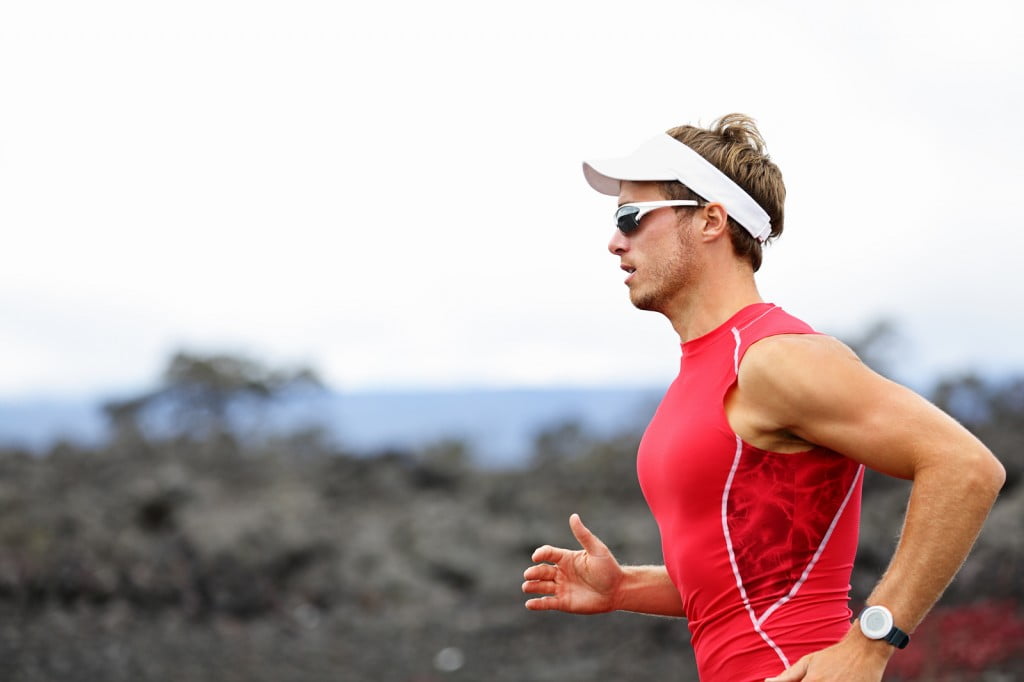It seems that the old adage “no pain, no gain” may be more intricate than previously thought.
For most people in good health, attempting a triathlon is well beyond a dream. Triathletes have to train for a grueling endurance sport, regularly pushing their bodies to the utmost limit: swimming, cycling and running long distances without breaks. While there is no doubt that triathletes are some of the toughest athletes, there is very little known about what gives them their exceptional abilities.
Recently, researchers at Tel Aviv University seem to have discovered a possible explanation. “In our study, triathletes rated pain lower in intensity, tolerated it longer and inhibited it better than individuals in a control group,” says Professor Ruth Defrin, the leading researcher of the study. “We think both physiological and psychological factors underlie these differences and help explain how triathletes are able to perform at such a high level.”
Related articles
- New Israeli Tendon Helps Athletes Spring Back Into Action In No Time
- Suffering From Lower Back Pain? Walk It Off!
Mind over matter
The study consisted of nineteen triathletes and seventeen non-athletes. The triathletes were those who trained for and competed in at least two triathlons per year – including in some cases the notoriously challenging Ironman Triathlon, which consists of a 2.4-mile (3.9 km) swim, a 112-mile (180 km) bicycle ride, and a 26.2-mile (42 km) marathon run. Those classified as non-athletes were people who did non-competitive exercises, like jogging, swimming, or aerobics classes.
Throughout the study, participants were subject to a battery of psychophysical pain tests, involving the application of a heating device to one arm and the submersion of the other arm in a cold-water bath. Afterwards, they filled out questionnaires in regard to their attitudes toward pain.
In the tests, the triathletes could discern pain just as well as non-athletes, but they felt it with less intensity and were able to withstand it longer. The researchers explain that detecting pain is a relatively straightforward sensory experience, whereas evaluating pain and being willing and able to endure it involves more psychological aspects, such as attitude, motivation and life experience. The triathletes were found to fear and worry less about pain, which may help explain their high tolerance, the researchers say.
Sign up for our free weekly newsletter
SubscribeFurthermore, triathletes demonstrated a better ability to restrain pain than non-athletes, as measured by conditioned pain modulation (the degree to which the body eases one pain in response to another). The researchers note that psychology may be a factor here as well. For instance, the triathletes with less fear of pain tended to exhibit better control of pain. Previous studies have similarly found that psychological manipulation can affect the perception of pain.
The chicken or the egg?
There is also another explanation for triathletes’ lower pain ratings, higher pain tolerance and better pain regulation. It is possible that through their vigorous training, they have taught their bodies to respond powerfully to painful stimuli. The researchers say that their study – along with existing literature – may indicate that the combination of psychology and physiology enable triathletes to host such remarkable abilities.
“It is very difficult to separate physiology and psychology,” says Defrin. “But in general, experience is the sum of these factors.”
The researchers intend to conduct further research to determine whether triathletes practice their sport because they feel less pain or feel less pain because their practice their sport. In the case of finding that intense training helps reduce and regulate the sensation, it could be used to treat people with chronic pain. Similarly to triathletes, chronic pain patients suffer daily, but they unable to regulate their pain so it has the opposite effect, weakening rather than strengthening pain inhibition.
The study was conducted at the Department of Physical Therapy at Tel Aviv University’s Sackler Faculty of Medicine by Defrin and her doctoral student Nirit Geva. Their findings were published in the journal Pain in August.
Photo: Running triathlon athlete man by Bigstock
Related posts

Israeli Medical Technologies That Could Change The World

Harnessing Our Own Bodies For Side Effect-Free Weight Loss

Missing Protein Could Unlock Treatment For Aggressive Lung Cancer




Facebook comments